‘Children of Nature’ is the excellent first album by Mark Reeder and Alanas Chosnau that reflects their personal experiences and hopes for the future.
Alanas Chosnau is one of the biggest singing stars in Lithuania, while Mark Reeder is the Manchester-born producer and remixer who founded the trailblazing techno label MFS and introduced NEW ORDER to electronic dance music along the way.
While ‘Children of Nature’ has something of a melancholic air, it is also optimistic and hopeful. Combining East and West European approaches thanks to Chosnau and Reeder’s respective locations in Vilnius and Berlin, the album does not mask its multi-generational influences and uses them to present good songs with superlative vocals and sympathetic instrumentation.
As two people who personally experienced the divisive spectre of the Cold War head on while living on opposite sides of The Iron Curtain, ‘Children of Nature’ symbolically captures that emotion of desiring love and intimacy in isolation, something that is very relevant in these strange times.
DRAMATIS’ Chris Payne who also co-wrote and played on the VISAGE hit ‘Fade To Grey’ said: “Mark Reeder and singer Alanas Chosnau have recorded a stunning new album called ‘Children of Nature’, a range of well-crafted songs and beautifully produced, with excellent vocals. If you’re a fan of electronic music this is definitely an album to add to your collection.”
With ‘Children of Nature’ attracting many positive plaudits worldwide, Alanas Chosnau and Mark Reeder kindly spoke about the genesis of their creative union and a lot more.
Had the two of you been aware of each other before actually meeting in person at the Lithuanian International Film Festival in 2015?
Alanas: Unfortunately, not. Life is full of surprises. I believe that our meeting was meant to be. Since the first talk at the festival, I immediately felt a creative connection and discovered we shared a love of similar music. Mark is an outstanding personality with so much experience and knowledge in music. I am privileged to work with him and also learn from him.
Mark: Yes, I first met Alanas at the Lithuanian International film festival in Vilnius, where I was presenting the documentary film, ‘B-Movie (Lust & Sound in West-Berlin 1979-89)’. It was a very glamourous event, presented by the President of Lithuania, and the audience were all dressed in formal evening wear, surrounded by glittering camera lights and TV crews. Upon arrival, I was asked if I could also perform a short DJ set during the actual opening ceremony, but due to time restrictions, that ended up being one song – and not really a DJ set. They set up a mixing desk and two CDJ turntables for me, which was dwarfed by the expansive stage and I was thinking, what’s the point of two decks? I can’t really mix anything, as I’m only going to play one song…
After a lengthy presentation of Lithuania’s singer-songwriters, acrobats, magicians and choirs, it was finally my turn to go on stage. The compare introduced me in obviously glowing Lithuanian and I just stood there like a showroom dummy grimacing with fear at my inescapable plight. Then, with a huge smile, he turned and asked me with great expectation, “so Mark, what are you going to do for us tonight?” – I simply raised my forefinger and cheekily said “I’m going to just press, PLAY”.
As the first strains of the song opened, I could see the look upon the fascinated faces of Lithuanian high society. I felt they were all smiling at me more in sympathy than enjoyment. It was very unnerving. As the song progressed, I could see their faces turning from bemusement to shock and horror. They literally all stared at me, open mouthed.
Their uncomfortable expressions were eroding at my confidence as I nervously twiddled with the knobs, and I was thinking, should I really be doing this? Strangely enough, once the song had finished, they applauded furiously, but I wasn’t sure if they were just thankful that my dreadfully pathetic performance was finally over.
Almost as soon as I got off stage, I was introduced to Alanas and he revealed that behind me, a huge projection screen was showing excerpts from ‘B-Movie’. Something I was completely unaware of. Then I realised, that’s why they were all so shocked.
So how did a conversation with some common ground about the Cold War lead to one about actually making music together?
Alanas: I guess we have managed to blend Cold War with Cold Wave philosophy and here it is – ‘Children of Nature’. True, our common political experiences and human understanding of those times has helped us find common solutions much easier. Despite different cultural backgrounds, where we have both matured, living the experience of a time before “the fall of The Berlin Wall” and the fall of Communism is something that bonds us together somehow.
Mark: I met up with Alanas to talk music, and he explained to me a little about his background, that he was originally a Kurd from Iraq, and he came to Vilnius during the Soviet era while he was still a young child. His parents had wisely decided it would be better to send him to Lithuania to keep him safe from Saddam’s possible purges, and eventually his gas bombs.
It was also interesting to hear how he had secretly listened to Western music as a child growing up in the Soviet Union. It seemed apparent that Lithuanians had always had this rebellious streak against their masters in Moscow and listening clandestinely to decadent Western Music was a kind of subversive, secret protest. Yet as he got older, he felt he wanted to make a different kind of music, something that was closer to his own heart.
We discovered our musical tastes overlapped and then the idea just emerged that we should maybe try and do something together. Alanas expressed his desire to finally make an album in English, but explained he’d never done it before, because finding the right kind of person, not only someone who understood the style of music he wanted to make, but also someone who would be able to guide him with his English, had so far proven to be elusive.
But after hearing my NEW ORDER reworking of ‘The Game’, he was convinced I might be the one. He asked me if I thought his English was good enough. I realised that as a kid growing up in the Soviet Union, they didn’t learn English at school. With the fall of communism in the early 90s, people were finally able to listen to all kinds of previously forbidden music from the West, but the lyrics were always a sticking point. That’s why techno became so internationally successful, because it was mainly instrumental.
Although I wasn’t initially aware of what he had achieved musically, I liked Alanas. Besides, he wasn’t asking me to work with him because I was some super famous pop star producer, but because he actually liked the sound of my music (especially my DEPECHE MODE remix). His own Lithuanian music sounded very contemporary and so I wanted to push his boundaries a bit. Give him something he wouldn’t normally do himself. My music is reminiscent. It doesn’t really have a date stamp on it, as it already sounds like it could be from a past era.
Eventually, we made ‘Losing My Mind’, which was then chosen to be the love song in the contemporary Cold War thriller ‘Le Chant Du Loup’ (The Wolf’s Call) and after that, we decided to make an album together.
Was the musical direction of the album something that was conscious and discussed?
Alanas: I would say that our album was consciously as well as intuitively directed. Mark was leading the process. We have exchanged much of our musical experiences, naturally discussed the lyrics and melodies of each track. We wanted our songs to reflect current people’s behaviour, feelings and needs. The message of our music is actual nowadays and I hope listeners hears it.
Mark: To a degree yes. Alanas liked the kind of sound I make and was open minded enough not to interfere. He also enjoyed the surprises and understood my idea was to make music in the present that reflected on our past, but is in fact timeless. Alanas would send me his basic vocal melody idea and I would take it and turn it into something else. Most songs had no real lyrics at first, so as the music developed, I would make subject suggestions, and write the lyrics accordingly, later as Alanas became more confident with his English, he would suggest themes too and write his own lyric ideas. Obviously, once our album started to take shape, we could see there was a pattern in the themes emerging. It wasn’t just all about love and loneliness, but also has contemporary political influences too.
Were there set roles within the writing and production or did you find that all interchangeable?
Alanas: We were so much into writing and producing new tracks. All our album was written interchangeably, while sharing music and lyric drafts, discussing, selecting and adjusting them. All the music production work was done by Mark and Micha Adam at their studio in Berlin.
Mark: Our roles were set before we started. Micha and I are already an experienced production team, and we each know where our strengths lie. Alanas is an established singer and songwriter. Yet for this project, he wanted a different sound to the contemporary one he usually pursues in Lithuania. I think he wanted to surprise his fans a bit there too. Mostly, we would create a template for Alanas to sing his idea to, then we would craft the song around it and write the lyrics, then we would fine tune it.
Did you put together the bones of the songs together while in the same room or was there quite a bit of remote working due to your geographical locations?
Alanas: The whole album work was basically done remotely, with me being in Vilnius and Mark in Berlin. We did have regular meetings in Berlin of course, but the most part of the studio work was remote.
Mark: No, we worked from separate cities. Quite an interesting process in itself and very modern thanks to the internet, such a process would have been impossible in the past. I had fortunately had enough experience working in this way before with other artists too, so it wasn’t so difficult for us. The only difference being in recording the vocals, when it comes to singing the lyrics and getting the intonation and pacing right, which is especially difficult for someone who is not a native English speaker, when they are next to you it is easy to say sing it like this or like that, but when they are in another city it’s not so easy.
Why the title ‘Children of Nature’? How did the song itself come together?
Alanas: The song ‘Children of Nature’ was one of the first tracks created for this album. At the beginning of our work, I sent the music draft to Mark with sketched lyrics including ‘Children of Nature’ and he liked the initial idea. Surely enough, Mark and Micha transformed it to perfection. When album was nearly finished, we realised that ‘Children of Nature’ is exactly the statement that represents our message to the people – we are responsible for the future of ours and future generations, thus must be warriors of our souls to protect it.
Mark: We felt that we wanted to make a statement to the generations of the future, show them what we thought about and that we cared. As a species, we have to a greater extent ruined much of our planet in a very short time. Nature has vented its anger upon us. Yet, in just a few weeks of lockdown, we saw all kinds of environmental miracles occur.
The planet doesn’t need us. It can wipe us out in an instant if it so desires. However, it proved, we could do a lot to help its recovery, if we really wanted to. It was a glimpse into an alternative future if we want it. Just imagine if we invested our technology and creative energy into helping our planet to recover, rather than build more weapons of mass destruction. In reality, we are all children of nature, but in little over a few hundred years we seem to have forgotten that, and as the world is governed by greed and selfishness, the egotistical desire for power and territory, puts us all in danger.
When The Berlin Wall fell, I had hoped that we were above all that in the coming 21st century. Sadly after 30 years, it seems not. We are back to where we were, at the start of the previous century. The cover design depicts a blurred image of post-nuclear children looking accusingly at the viewer. It’s a kind of forewarning. Do we want the future generations to grow up in that kind of post-nuclear world?
The cinematic ‘Losing My Mind’ was the first song released from the sessions and appropriately was in the French Cold War movie ‘Le Chant Du Loup’? Are you fans of spy dramas?
Alanas: Of course, since being a teenager I loved war and spy movies, because their characters take risks and go the end until they reach their goal, or die for it. These characters are mysterious and entertaining, capable to transcend me to new realities.
Mark: I grew up on James Bond and Harry Palmer. John Barry was a constant companion from being child. When Antonine Baudry approached me with a request to write a song for a love scene in his film, we had just started work on ‘Losing My Mind’. I decided as it was a contemporary Cold War thriller, I would pay homage to the music of Cold War thrillers of the past. Antonine heard the first draft and loved it immediately. That’s the version that appears on the soundtrack album.
If the British had James Bond and Harry Palmer, was there an Eastern Bloc equivalent?
Alanas: I guess that the best-known Soviet and even post-Soviet James Bond equivalent is a spy Stierlitz from the famous television series ‘The Seventeen Moments of Spring’ filmed in 1973. This movie has made the greatest impression on me while being a young kid.
One of the album’s highlights is the magnificent ‘Heavy Rainfall’, is that about the environment or something else?
Alanas: Funny enough, this track has nothing much in common with climate, environment or any form of natural weather conditions. Actually, ‘Heavy Rainfall’ transmits the message of the unfortunate rise of totalitarian regimes and strengthened social and even digital control over people.
Mark: ‘Heavy Rainfall’ is a song about how our thoughts are manipulated, about how our attention is diverted by trivia. It’s a warning, to be aware, but also the message is positive, that no matter how much heavy rainfall we get, we just have to wait and ride out the storm.
‘A Loving Touch’ appears to reference ‘Give Me Tonight’, was that intentional?
Alanas: Hmm, I am not sure I know that song ‘Give Me Tonight’. So most probably that means it was not intentional.
Mark: You are the only person who has made that comparison. Well, no it certainly wasn’t intentional. We are all subconsciously influenced by music we have heard though, sometimes you write something and think “have I heard that before?”
Thanks to SHAZAM, you can immediately see if it references anything. It might have partially a similar structure perhaps, which may give that impression, but we never thought of that. I just wanted to make a positive sounding song for the closing part of our album, something which captured a feeling for the roaring 2020s.
Strange thing is, now that we have all been through lengthy stretches of social distancing, where we were not allowed to kiss or hug our friends and loved ones, the message in this song takes on an entirely different meaning.
A track from the SHARK VEGAS archives ‘I Can’t Share This Feeling’ has been dusted off, what was the thinking behind this?
Alanas: To be honest, once Mark shared this track with me, I did not know at all that it is an old track from the SHARK VEGAS shelf. After we had recorded the vocals and the track was fully produced, Mark introduced me to the legend of SHARK VEGAS. We had a great conversation then, I remember. Mark really knows how to pleasantly surprise people.
Mark: I was going through some old SHARK VEGAS demo cassette tapes and I came across a song that I had recorded one night with Alistair Gray in our practice room in Tempelhof airport in the 80s. It never got beyond the rough demo tape stage and I was thinking maybe Alanas might be able to sing this.
So, I reworked it and sent him the backing track and vocal guide. I didn’t tell Alanas it was actually a song from the 80s, as I wanted to surprise him. And as it’s a mixed vocal of me and him, I decided it would only be fair to credit it to SHARK VEGAS.
‘All Alone’ is very on point with the current worldwide lockdown situation, but what had been its original sentiment?
Alanas: ‘All Alone’ is about loneliness, a lonely man in this World. The unexpected coronavirus lockdown has only strengthened this inner feeling of ours. Hasn’t it? When health crisis happened, we had no doubt of which vector of lonely humanity to choose – lockdown dictated it all and we dedicated this song to all the people isolated at home and in hospitals. It appears that we made quite a prophetic song and we indirectly could foresee the upcoming corona crisis.
Mark: Due to the lockdown, this song unintentionally became the first album outtake. We discussed the idea of making a video during lockdown but due to the restrictions it seemed almost impossible to venture outside without consequences, so Alanas made one at home. It’s structured like a 60s song, wrapped in a synthpop style with a contemporary theme.
Initially, I wanted it to be about the dilemma and frustration of loneliness. This is a subject that has actually been a reoccurring theme throughout my entire career, because no matter what, we are born alone and die alone and for the part in between we can sometimes find ourselves left alone, and we are all victims of that at some stage in our lives. It’s a solitary cry for solidarity.
‘Drowning in You’ has something of a ‘Heroes’ feel about it, had Berlin been a key symbolic influence on the album?
Alanas: Comparison to David Bowie is a great compliment. One of my very first childhood journeys was from Baghdad to West-Berlin in 1980 with my beloved mother. Since then, I carry those captured memories of Berlin’s streets, people and unique feeling in the air. Each stay in Berlin inspires me a lot and now working with Mark and Micha at their Berlin studio kind of blends it all together. No doubt, Berlin has influenced our music and I guess Mark can say much more to that point. Berlin is a city like no other.
Mark: ‘Drowning in You’ is a song about love at the dawn of a totalitarian regime, as it creeps upon you without realising the danger. The future looks optimistic even, but then things start to change. Berlin has seen that happen, but it could happen anywhere, anytime. It’s a song of reflection, on a time gone by, when the World seemed a happier place. Everything seems normal at first, but then things slowly start to disintegrate until the day comes when you suddenly find yourself being hauled off to a labour camp…
‘Fade On’ reflects a love for DEPECHE MODE, another act with Berlin very much in their DNA, have you seen the ‘Spirits In The Forest’ film?
Alanas: I first heard DEPECHE MODE as a twelve-year-old when I was already living in Soviet Lithuania, where international music from the West was super hard to get. I found the cassette tape with a name “DEPECHE MODE” at my older cousin’s house and I played ‘People Are People’. That was it. I was totally blown away of how the music sounded. I really cannot deny that discovering DEPECHE MODE in those pale Soviet times strengthened my dream to become an artist, and create my own music and form a band. Yes, I did see the ‘Spirits In The Forest’, loved the cinematography and style of storytelling itself.
Which songs have been your own personal favourites from ‘Children of Nature’?
Alanas: The whole album is an emotional journey through the complex human nature. It speaks to the listener of love, joy, loneliness, happiness, fulfilment, fear, pain… it even predicts the future if you like. The album’s structure is very consistent thanks to Mark’s insights and rich musical experience.
I hope our listeners can feel it. One of my favourite songs is ‘How Do You feel’, because it’s very inspiring and motivating. Also ‘Drowning In You’, ‘Fade On’, ‘Love Of My Life’, ‘Children of Nature’, ‘Heavy Rainfall’, ‘It’s Who You Are’, ‘I Can’t Share This Feeling’…errr
Mark: I can’t really answer that question. I just made an album that I thought Alanas, Micha and I would like to buy. I didn’t want to reinvent the wheel. I just wanted it to be a collection of familiar styles and sounds, that trigger a feeling of reminiscence, but then again, each song is different. It’s an electronic album, but sometimes it also has dance and rock elements to it, like a mixture of all the sounds that have influenced my own musical career.
Your partnership has been well received by music fans, is this a one-off or is working together again something you would like to do?
Alanas: We are very grateful to our fans who like our album and listen to it. I had long discussions with Mark before recording the first track. It took us a while to come up with this decision and I appreciate his trust and belief in me a lot.
Our partnership grew to a highly creative and mutually respectful relationship and I would definitely like to continue working together.
Mark: Micha and I have really enjoyed working with Alanas, we became a great team and we don’t see it ending with this album, on the contrary, we all hope our work will continue, and so it will. Not only have we managed how to make an album while being miles apart, but I think we have found the right song writing formula too in which we can work, which will hopefully make things easier for our next album.
What is next for each of you?
Alanas: Currently we are intensively promoting the digital album, producing new music videos and plan live shows once the corona crisis regulation allows it. Our record label MFS will soon release vinyl and CD formats of the album as it was already planned before the lockdown. As for the future, we do have creative brainstorms, but now all our efforts are focused on making ‘Children of Nature’ a success.
Mark: As always, my music life never stops evolving and apart from promoting ‘Children of Nature’, I have also been quite productive since I came out of lockdown.
First off, I made two remixes of the title track ‘Children of Nature’ for the ‘Natural Selection’ EP, which are much more clubbier in their approach. I also remixed ‘Light of the World’ by BIRMINGHAM ELECTRIC, a project based in Amsterdam. I also remixed ‘Dead Soul’s by a band from Mexico called DEER who currently live in Hong Kong and I have just finished a remix for the CEMETERY SEX FAIRIES.
ELECTRICITYCLUB.CO.UK gives its warmest thanks to Alanas Chosnau and Mark Reeder
The ‘Children of Nature’ album and the ‘Natural Selection’
EP are released by MFS via the usual digital platforms including https://markreeder.bandcamp.com/releases
https://www.facebook.com/alanaschosnau/
https://www.instagram.com/alanaschosnau/
https://www.facebook.com/markreeder.mfs/
https://twitter.com/markreedermfs
https://www.instagram.com/markreeder.mfs/
https://open.spotify.com/album/6QinQBH8STYT86s59YRO8t
Text and Interview by Chi Ming Lai
Photos by Martyn Goodacre
11th July 2020

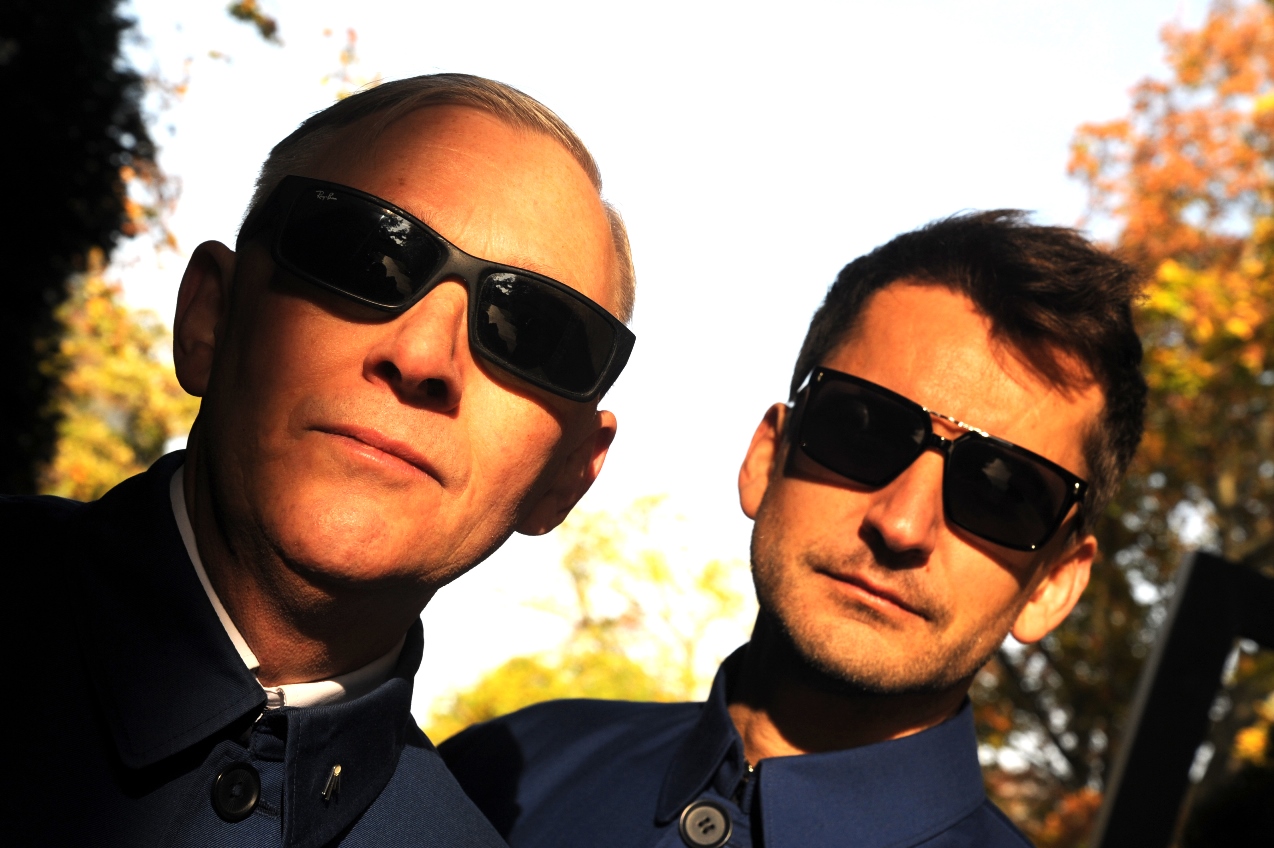
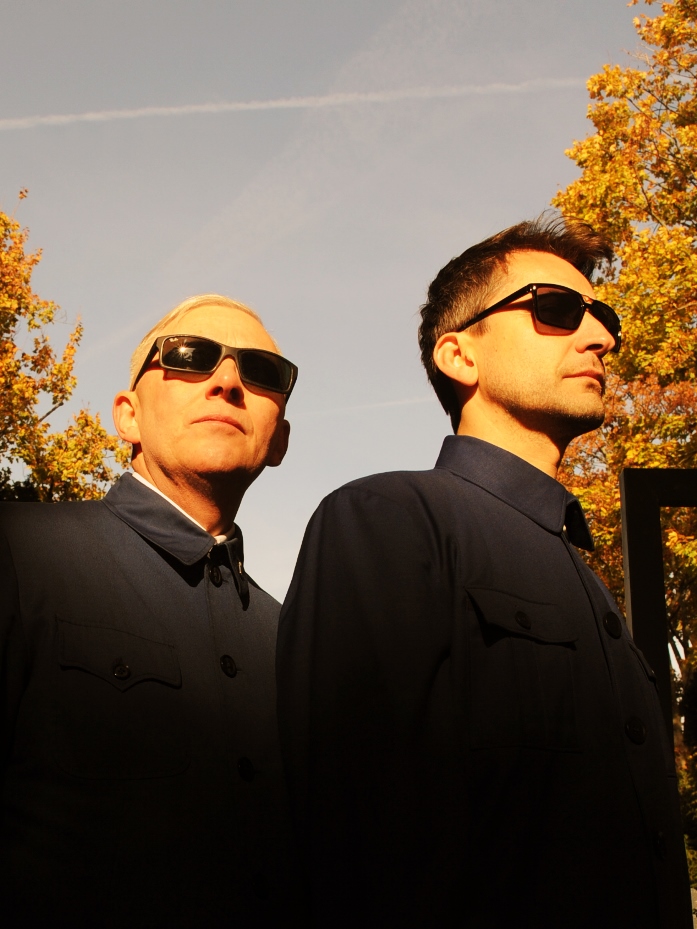
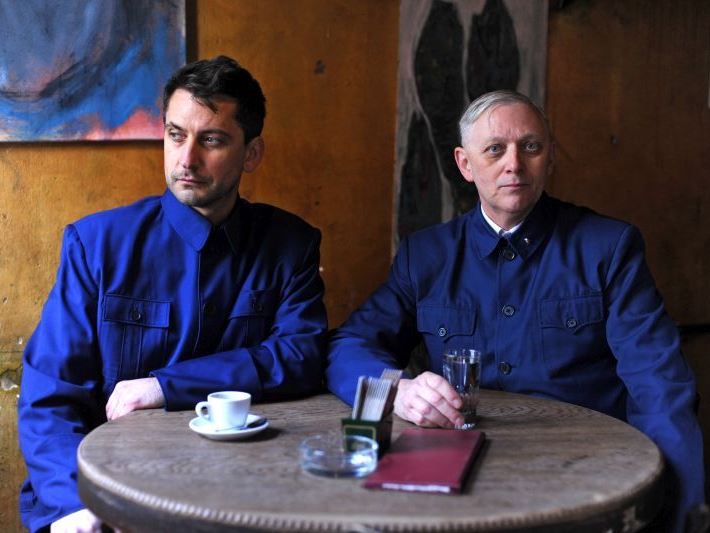
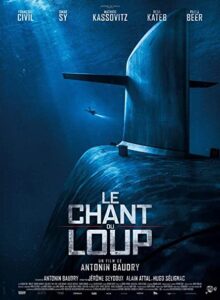
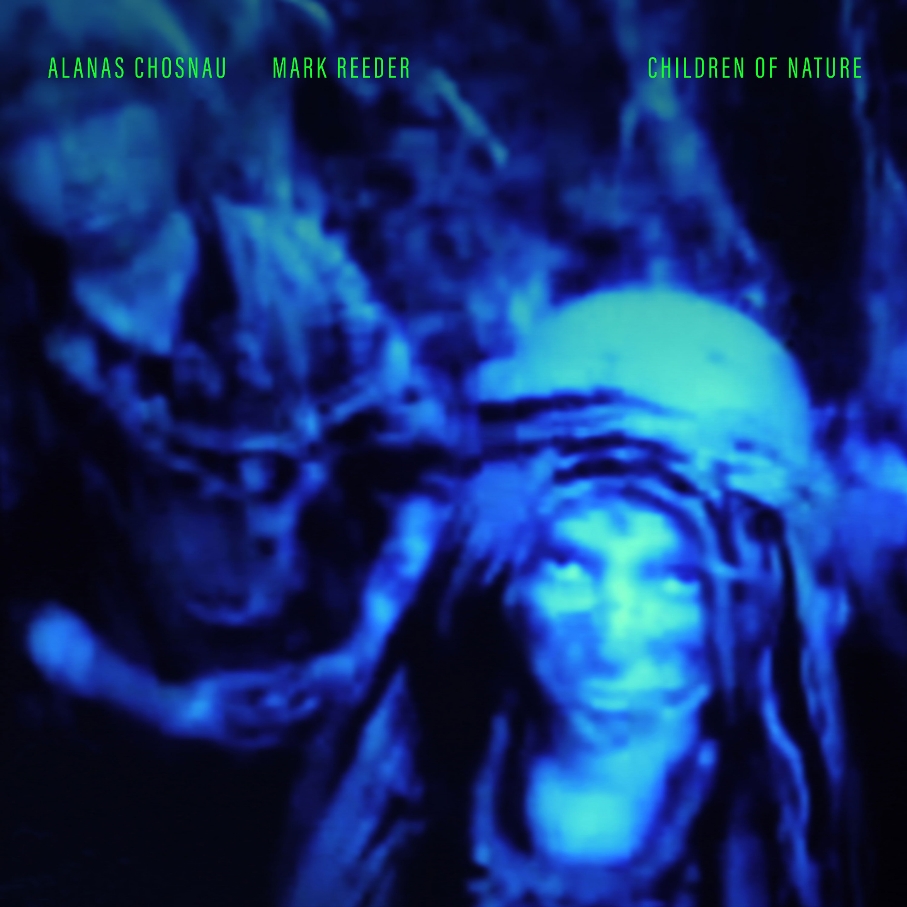
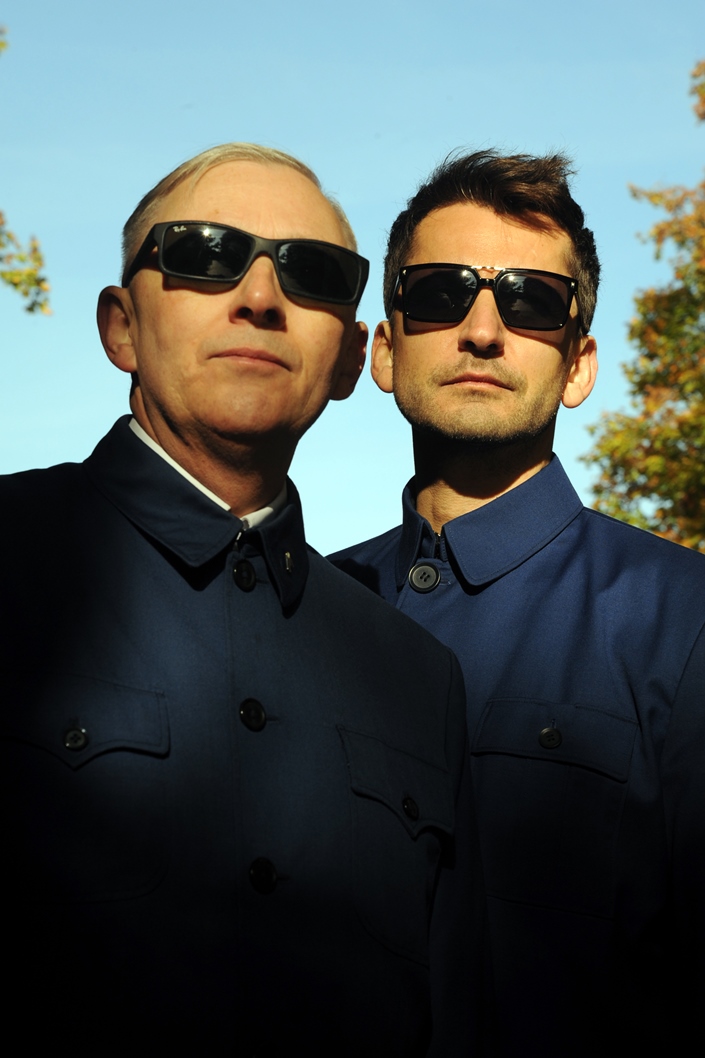
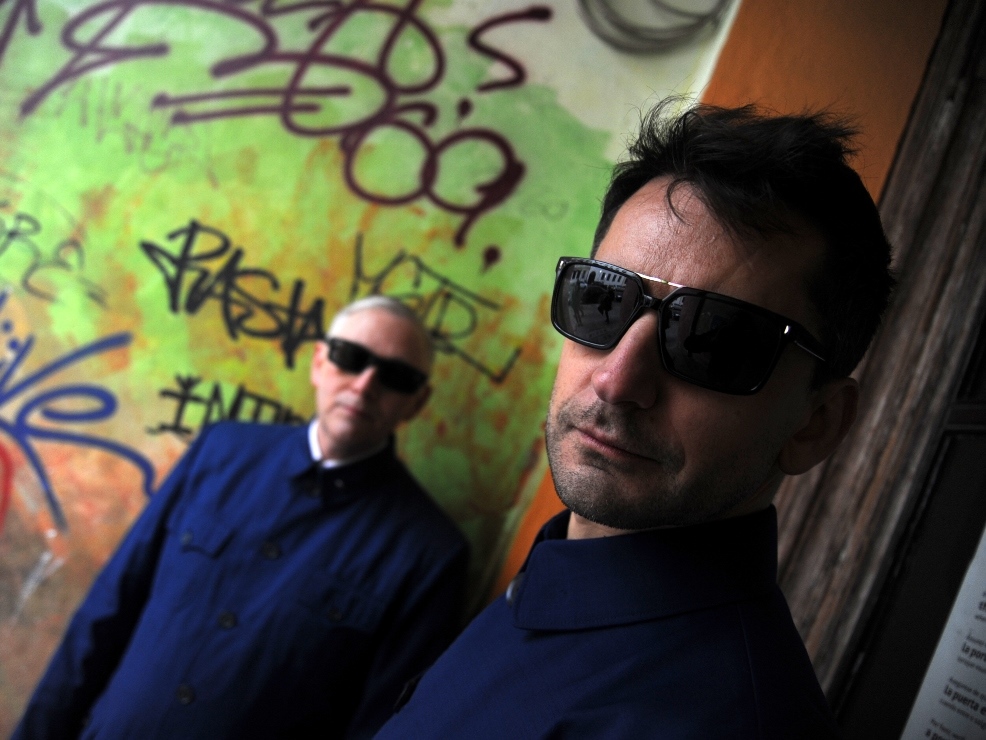
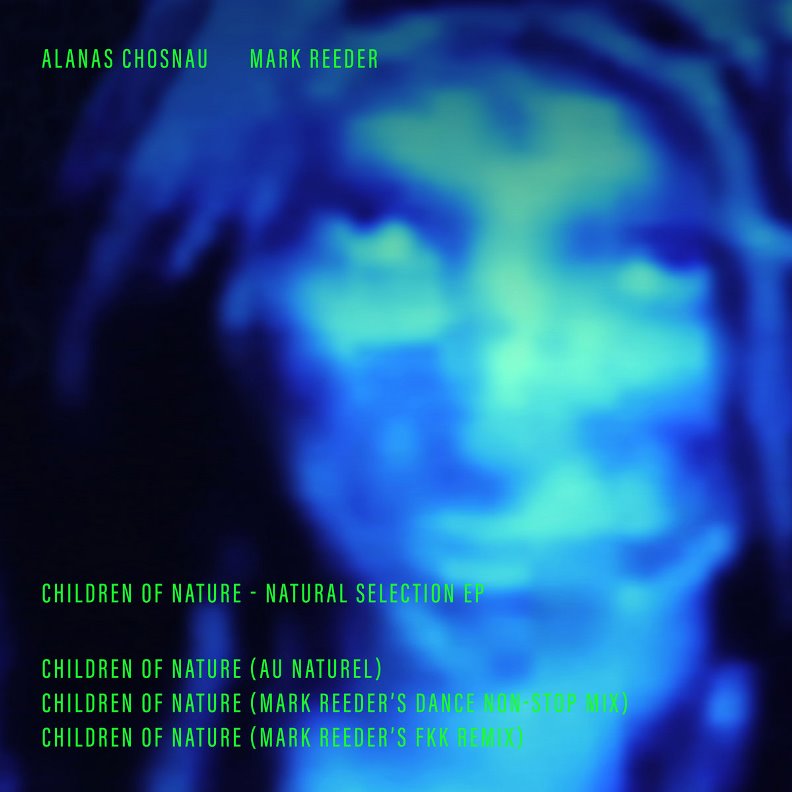
Follow Us!